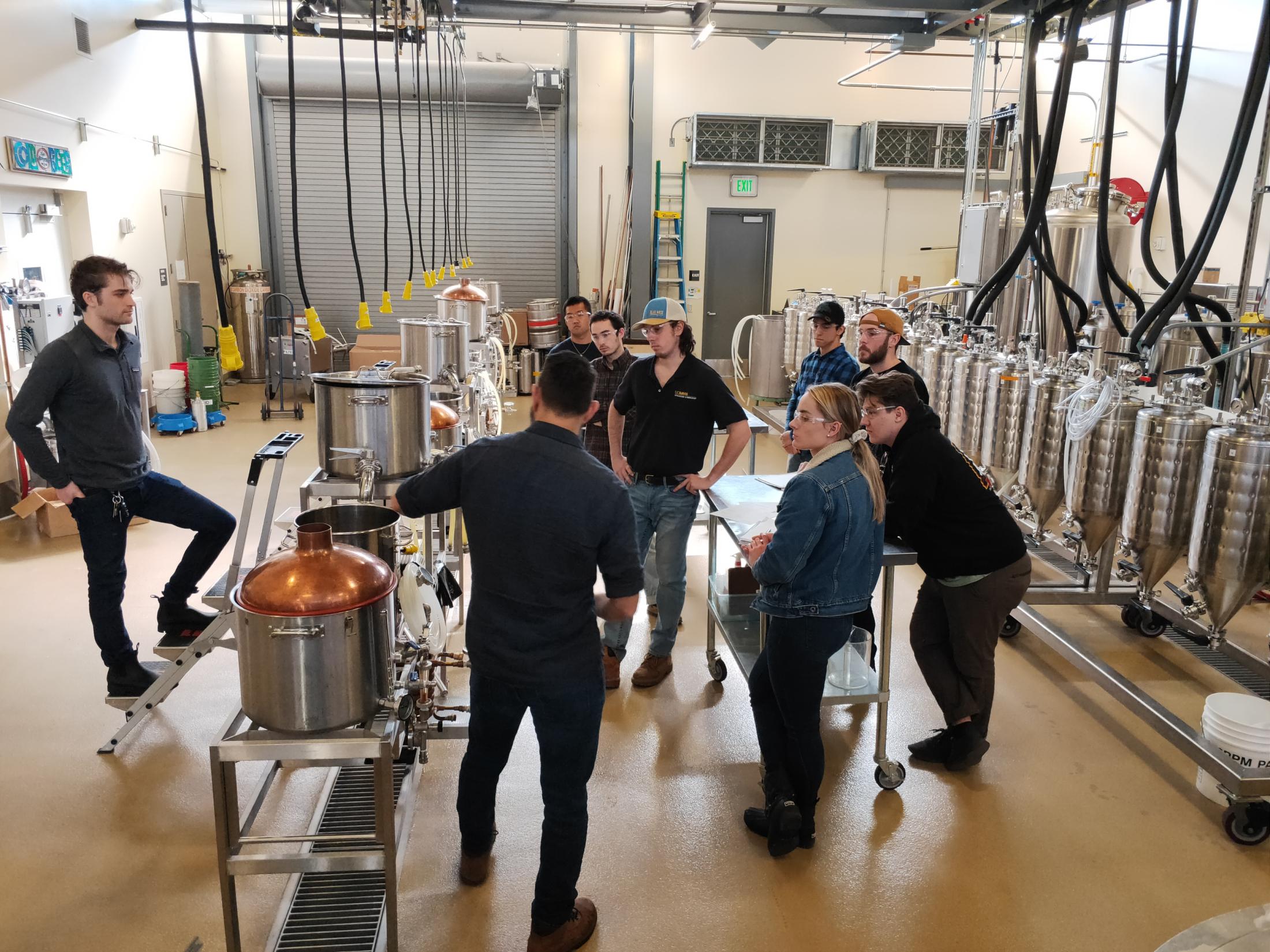
COURSE GOALS: To introduce students to the basic methodology used in malting and brewing laboratories for the analysis of raw materials and monitoring of process and product. To apply these methods in the analysis and characterization of a range of raw materials varying in their suitability for use and also to monitor experiments designed to demonstrate the variations that can occur in brewing. To perform pilot brews for the purpose of identifying the impact of raw materials and process conditions on performance and quality. Students will interpret data in relation to the understanding of malting and brewing science gained in course FST 102A.
PREREQUISITES: FST 102A; CHE 2A, 2B, and 2C
COURSE FORMAT: Four units. The class meets for one lecture and one brewery or laboratory session per week. By its nature, a practical class in brewery will demand that students may need to devote some time to working in the brewery outside the allotted study periods. Students will be divided into teams of three or four for the brewing practicals. The eligibility for this course will be your grade from FST102A. Students will be graded on the quality of their contribution to the class, weekly quizzes, one short final, and the quality of their laboratory notebook.
The major part of this course will be students designing their own brewing recipes for the Iron Brew competition. Groups will brew four beers, with three of their own design. They will select one of these brews to be judged in the Iron Brew competition, with judging in the last week of the quarter. Students will measure the quality of their entered beer, design a label and bottle their beer for presentation to the judges. The judging is carried out by industry brewers and raw material suppliers. The winner recipe will be brewed at local craft brewery, Sudwerks. To compete in this competition is a great opportunity for students to understand the full brewing process from design to packaging and engage with industry brewers to discuss their beers.
TOPICAL OUTLINE: Students will differentiate between acceptable and unacceptable raw materials, including barley, malt, adjuncts, hops, water and yeast. Using small-scale tests they will assess the impact of variables on process performance (e.g. fluxes and yields). They will design and pursue pilot scale brews to demonstrate how selection of raw materials and process conditions can generate beers of different kinds and qualities.
